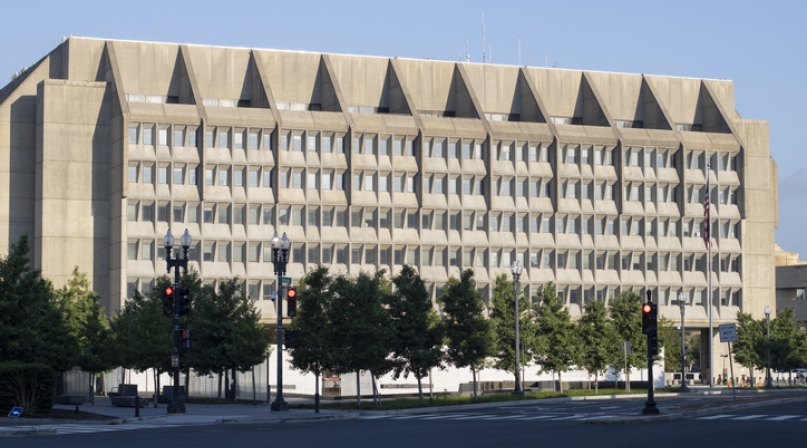HHS includes key MIEP priority in roadmap for behavioral health integration
Author

Blaire Bryant
Upcoming Events
Related News

Key Takeaways
On September 16, the U.S. Department of Health and Human Services (HHS) released the HHS Roadmap for Behavioral Health Integration (Roadmap), which included a major win for counties and our efforts to reform the Medicaid Inmate Exclusion Policy (MIEP).
The Roadmap outlined plans to submit a report to Congress describing innovative strategies and best practices to help individuals who are currently incarcerated and returning community members ensure continuity of Medicaid coverage and seamless transitions back to the community. The findings will inform the design of a Medicaid 1115 demonstration opportunity to improve care transitions and expand coverage to returning community members.
While the MIEP restricts Medicaid coverage for inmates of public institutions which include jails and prisons, at least six states (Ariz., Calif., Ky., Mont., Utah and Vt.) have sought Section 1115 waiver authority from the Centers for Medicare and Medicaid Services (CMS) to facilitate Medicaid enrollment prior to their release from carceral settings.
Coordinating access to Medicaid services prior to release from jail or prison has a dramatic impact on behavioral and mental health care continuity, which reduces recidivism and improves health outcomes for individuals that are reentering their communities. Counties recognize Medicaid reentry as an important component in our nation’s behavioral health strategy, and in the larger strategy to reverse the negative impacts of the MIEP. Counties support both regulatory and legislative pathways to advance this policy. In July of 2021, NACo led efforts in calling for the advancement of the bipartisan Medicaid Reentry Act (S.285/H.R. 955) alongside 135 local and national stakeholders.
The Roadmap highlights federal policy actions that address identified challenges to behavioral health integration, with a focus on three pillars: strengthening system capacity; connecting Americans to care; and supporting Americans by creating healthy environments. In addition to the Medicaid reentry provision, HHS provided an overview of initiatives the agency has started this year that align with key county behavioral priorities, including:
- SAMHSA’s nationwide directory of opportunities to serve in crisis counselor roles on the 988 Suicide and Crisis Lifeline, which provides direct links to crisis center jobs across the country to build and sustain the crisis care workforce
- The Bipartisan Safer Communities Act expanded the Certified Community Behavioral Health Clinic (CCBHC) demonstration model to all states and made the Medicaid option permanent
- HRSA’s Bright Futures program provides guidelines to improve the health of infants, children and adolescents, which address behavioral health assessments, screenings and procedures
- SAMHSA’s Resiliency in Communities After Stress and Trauma (ReCAST) program promotes behavioral health integration and equitable access to trauma-informed resources, among other goals that support community resilience
- Project Advancing Wellness and Resiliency in Education (AWARE) builds the capacity of State Educational Agencies and strengthens the behavioral health infrastructure by advancing school-aged children’s wellness and resiliency through increased mental health awareness, universal interventions, identification of students at risk and access to treatment
You can access the entire HHS Behavioral Health Roadmap here.
NACo supports federal policy that works to advance the U.S. behavioral health system and will closely monitor HHS initiatives and Congressional action that impacts the mental health and well-being of our communities. County leaders applaud the federal government for including administrative changes to policies around healthcare access for justice-involved populations and stand ready to work with HHS and Congress to advance policy that removes barriers to care in local jails such as MIEP.
Additionally, on September 30, NACo and the National Association of County Behavioral Health and Disability Directors (NACHBDD) will be hosting a webinar on the outlook for bipartisan action to address the Medicaid Inmate Exclusion policy (MIEP) for the remainder of the 117th Congress. The webinar will feature an update on legislative developments from key congressional staff and an overview what counties can do now to ensure the passage of this important policy.
Register for the webinar here.
ADDITIONAL RESOURCES
- NACo Webinar: MIEP Call to Action: Advancing Legislation the Addresses the Medicaid Inmate Exclusion Policy
- NACo Press Release: National Association of Counties Joins Over 135 Local and National Health, Mental Health and Justice Organizations in Calling on Senate Finance Committee to Consider Bipartisan Medicaid Reentry Act
- NACo Blog: President Biden announces strategy to address the national mental health crisis
Press Release
National Association of Counties Joins Over 135 Local and National Health, Mental Health and Justice Organizations in Calling on Senate Finance Committee to Consider Bipartisan Medicaid Reentry Act
NACo in partnership with more than 135 local and national community groups, health, mental health and justice organizations, sent a letter to the chairman and ranking member of the U.S. Senate Committee on Finance expressing support for the bipartisan Medicaid Reentry Act (S.285)
Related News

HRSA Releases Final Reentry Care Guidelines Following NACo Input
On November 29, the Health Resources and Services Administration (HRSA) released their final Policy Information Notice (PIN) with policy guidance for health centers who support transitions in care for justice-involved individuals reentering their communities.

U.S. Senate Committee approves legislation to reauthorize programs for older adults
On July 31, the U.S. Senate Committee on Health, Employment, Labor and Pensions (HELP) approved the bipartisan Older Americans Act Reauthorization Act of 2024 on a 20-1 vote.

Congress advances Second Chance Act reauthorization
On December 4, the Senate passed the Second Chance Reauthorization Act (S.4477) by unanimous consent, a major milestone for supporting county reentry programs. NACo supports this legislation, which would reauthorize funding for Second Chance Act programs for five years.